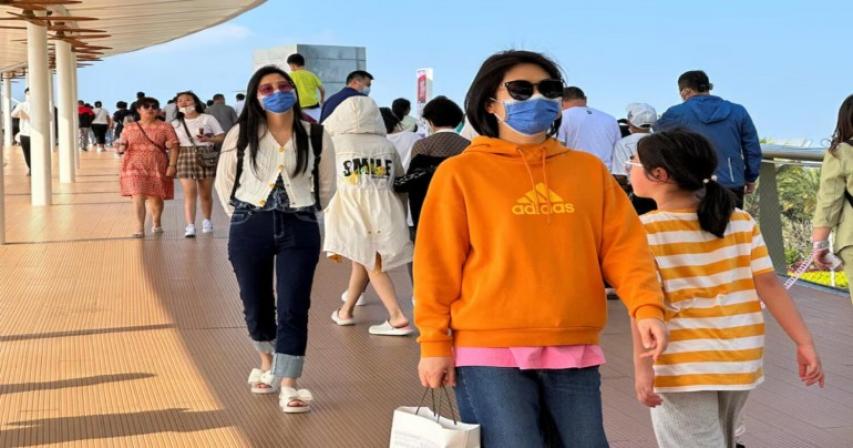HMPV outbreak: How the virus is transmitted; symptoms, treatment

Cases of the respiratory virus Human Metapneumovirus (HMPV), which gives people flu-like symptoms, are rising in China. The country’s disease-control centre said it was keeping a close eye on the system for pneumonia of unknown cause, and cases of at least some respiratory infections could increase throughout the winter.
This epidemic is occurring five years after the Covid-19 pandemic, and there is word that the virus is circulating very quickly. Malaysia is the second country in Asia with an increased HMPV infection rate over the past few months after China. Also in India we have seen cases.
The video trending on social media showed a Chinese hospital clogged with flu patients. Yet as China’s foreign ministry spokesperson Mao Ning reported last week: "Colds typically peak in winter.
"The disease are appearing to be less severe and are a little bit more localized than last year. I can tell you this, the Chinese government is serious about the health of Chinese people and foreigners in China", she added.
Recently, China’s National Disease Control and Prevention Administration held a press conference to report about the prevention and control of respiratory diseases in China in the winter season.
What is HMPV?
Human Metapneumovirus – It is a respiratory disease, and it resembles the common cold and flu. The disease is often intractable but it can be extremely serious with pneumonia, especially in babies, the elderly and those who have compromised immune systems.
What is HMPV and how do I know if I have it?
Cough, fever, nasal congestion, shortness of breath, and sore throat are some of the symptoms of HMPV. These appear about three to six days after the exposure. The most serious form of illness with HMPV can be life-threatening and even hospitalising.
It has an incubation period of 3–6 days and the median duration of disease varies with severity, but it is similar to other viral respiratory infections, reports the Centers for Disease Control and Prevention.
Is HMPV a serious disease?
The vast majority of patients make full recoveries at home in the next few days (most are mild). But young children, people aged 65 and older, and those with weak immune systems are particularly vulnerable to severe illness, says the Cleveland Clinic.
First HMPV infection tends to make people extremely sick, and that’s why children are especially vulnerable. One gets some immunity after infection, and usually milder cold-like symptoms occur later on.
How is HMPV transmitted?
HMPV spreads when you touch someone infected. It can also be spread through touch on infected surfaces, through coughing, sneezing or hand shaking. If symptoms get to be severe, one can expect coughing, wheezing and shortness of breath. You should visit a doctor as soon as possible in such situations.
Metapneumovirus Antibiotics: Do you require antibiotics?
As of yet, HMPV is not vaccineable. This kind of treatment is usually for symptoms. Medicines for pain and fever from the store and a decongestant will help.
Contact a healthcare provider if:
-
You or your child are suffering from the respiratory infection and another disease that leaves you or your child at a high risk of serious illness.
-
Neither your symptoms nor your child’s symptoms start to improve in a few days or you or your child are feverish for longer than three days.
Prevention
Avoid spreading HMPV and other respiratory viruses by following these steps:
-
Remain clean with soap and water on hands regularly for 20 seconds at least.
-
Do not touch eyes, nose, or mouth with dirty hands.
-
Don’t come in close contact with people who are sick.
-
When a patient is coughing and sneezing with cold-like symptoms, cover the mouth and nose.
-
Share cups and eating utensils, not with others.
-
Refrain from physical contact
-
Stay at home when sick
-
Additionally, washing possible infected objects (like door handles and communal toys) could prevent HMPV transmission.
Spread to other countries
Along with Malaysia and India, there are a few cases of HMPV in Hong Kong. Other neighbours, including Cambodia and Taiwan, are monitoring closely.
Malaysia had 327 HMPV cases in 2024, up from 225 in 2023, and this is a 45 per cent rise. The Malaysian Health Ministry is asking citizens to be more proactive to prevent HMPV’s outbreak.
Two cases were reported in Karnataka, two confirmed by the Indian Health Ministry, and they were detected by standard surveillance for respiratory viruses. The babies neither had ever travelled abroad.






Comments